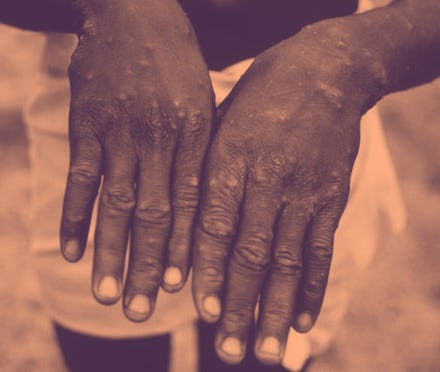What fresh hell is monkeypox?
Here’s what we know about the biblical-sounding plague that just arrived in the U.S.

I am so tired of living in unprecedented historical times. Every day before I read the news I am struck with profound inner turmoil. “Will today be the day the U.S. is devoured by locusts?” I wonder. Well, luckily (or unluckily) that’s not real, but in other news, a rare disease called monkeypox has arrived in the U.S. What fresh hell is this, you ask? Before you freak out, here’s everything you need to know about monkeypox cases in the U.S. and Europe.
First of all, only one case of monkeypox has actually been confirmed in the U.S. Massachusetts health officials announced on Wednesday that a man who had recently traveled to Canada was diagnosed with the virus. He is reportedly in stable condition and has been in an airborne infection isolation room since last Thursday, according to CNN.
In case you’ve never heard of monkeypox, that’s because — despite the fact that it’s currently dominating the headlines — it really is extremely rare at this point. The viral infection is closely related to smallpox that causes a flu-like illness and a rash or lesions. It can be fatal, but usually is not, according to experts; monkeypox is considered much milder than smallpox and about 10% of people infected with monkeypox die from the disease. Luckily, we already have a vaccine for smallpox, which research estimates to be about 85% effective against monkeypox.
Public health officials told CNN that they aren’t sure how the man caught monkeypox but assure that his infection does not pose a public health risk. Okay, but what about the fact that monkeypox cases have also been popping up in Europe? During the last few weeks, nine monkeypox cases have been diagnosed in England. “Historically, this has been a very rare disease, with very rare transmission around the world,” Paul Biddinger, the chief preparedness and continuity officer at Mass General Brigham, told CNN.
Monkeypox, then, will probably stay rare. “What we have seen in the United Kingdom, in Spain and in Europe, has been novel and that gives us cause for concern, but, I think appropriately, people should not be afraid of monkeypox right now,” Biddinger told CNN. Just in case, though, the British government announced today that it will be offering smallpox vaccinations.
Monkeypox is endemic in Nigeria, where it was first identified in monkeys. Unfortunately, it spreads easily between animals and humans and also between humans and other humans. These recent cases have reportedly been found predominantly among men who have sex with men (MSM). There are, again, so few active cases around the world that you really don’t need to worry, but in case you’re a bit on the hypochondriac side (it me) be aware that the disease spreads via bodily fluids and large respiratory droplets. Consider a mask when you’re in a crowded indoor space, friends.